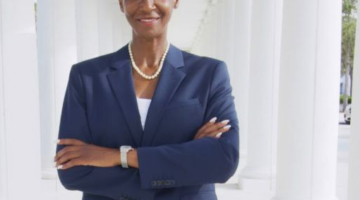 “I rarely see any Black students in my calculus classes.” “I was not good in math and my children aren’t either.”
“I rarely see any Black students in my calculus classes.” “I was not good in math and my children aren’t either.”
Statements like these are all too frequently heard in our communities and they can become self-fulfilling prophesies and they constitute another area where we can look to Africa for leadership.
Forward-looking African leaders know that, for the continent to progress, they must have African expertise, not Chinese, Indian or Western. There is no question about the ability, only the opportunity. To increase that opportunity, there is the African Institute for Mathematical Sciences (AIMS), founded in 2003 in Capetown, South Africa. It has taken 50 students every year from all over the continent and a total of 305 have graduated, with 95 percent now going on for master’s and doctorates.
Students have come from Benin, Burkino Faso, Cameroon, Central African Republic, Chad, Democratic Republic of Congo, Ethiopia, Egypt, Ghana, Kenya, Lesthoto, Madagascar, Malawi, Niger, Nigeria, Republic of Congo, Rwanda, Sudan, Tanzania, Togo, Uganda, Zambia, Zimbabwe and, of course, South Africa.
Outstanding mathematicians at the cutting edge of research have come from all over the world, including from the University of Miami, to participate. It has been built with funds from numerous small and midsize donors both within and without the continent.
The Institute has set up and serves as the secretariat for the African Mathematical Institutes Network which links higher education throughout Africa. This body has endorsed the AIMS Next Einstein Initiative, whose vision is “to unlock and nurture the scientific talent across Africa so that within our lifetime we can celebrate an African Einstein.”
The initiative has the backing of the New Partnership for Africa's Development (NEPAD), a program of the African Union created by Africans, for Africans and implemented by Africans.
The CEO of the NEPAD has stated that “Africa recognizes that in order to achieve economic and social progress countries have to put more emphasis on how to use the sciences as a vehicle for development.” Stepping up to meet the challenge, President Abdoulaye Wade of Senegal has committed land and $1.4 million to the creation of an AIMS Senegal and set it up as a Senegalese charitable foundation so it can accept donations, with a distinguished board of directors from Senegal and outside.
Canada has awarded a grant of $19.5 million to support the plan. We in the U.S. should look to this example and encourage our young Africans to excel in the sciences and mathematics.
Brad Brown is the first vice president of the Miami-Dade NAACP. He is also a contractor with the National Oceanic and Atmospheric Administration, where he works on African coastal and marine projects.












No Comment